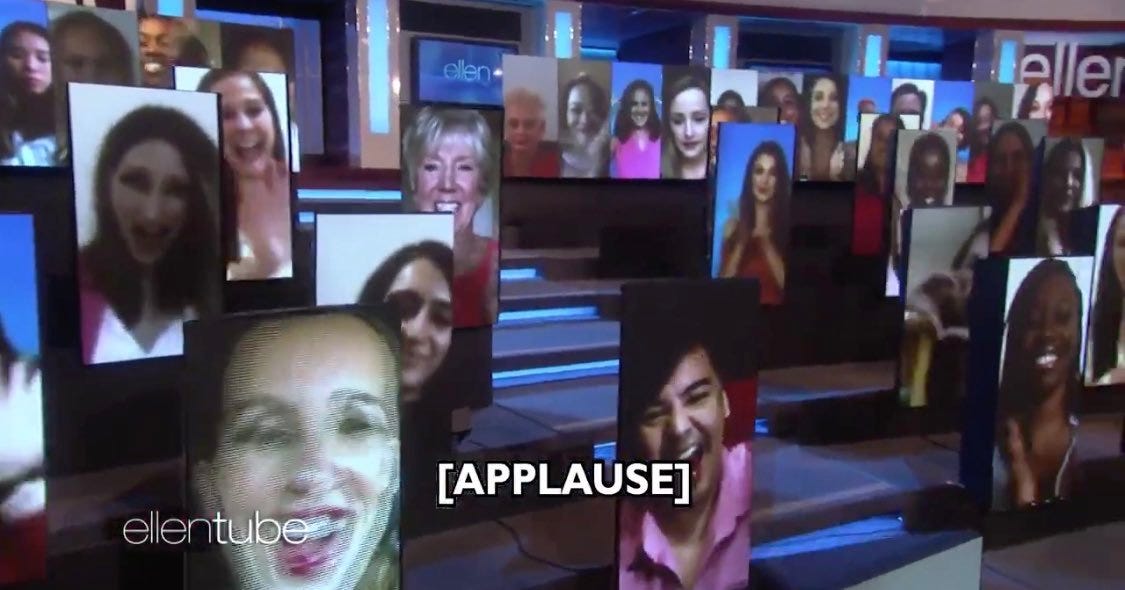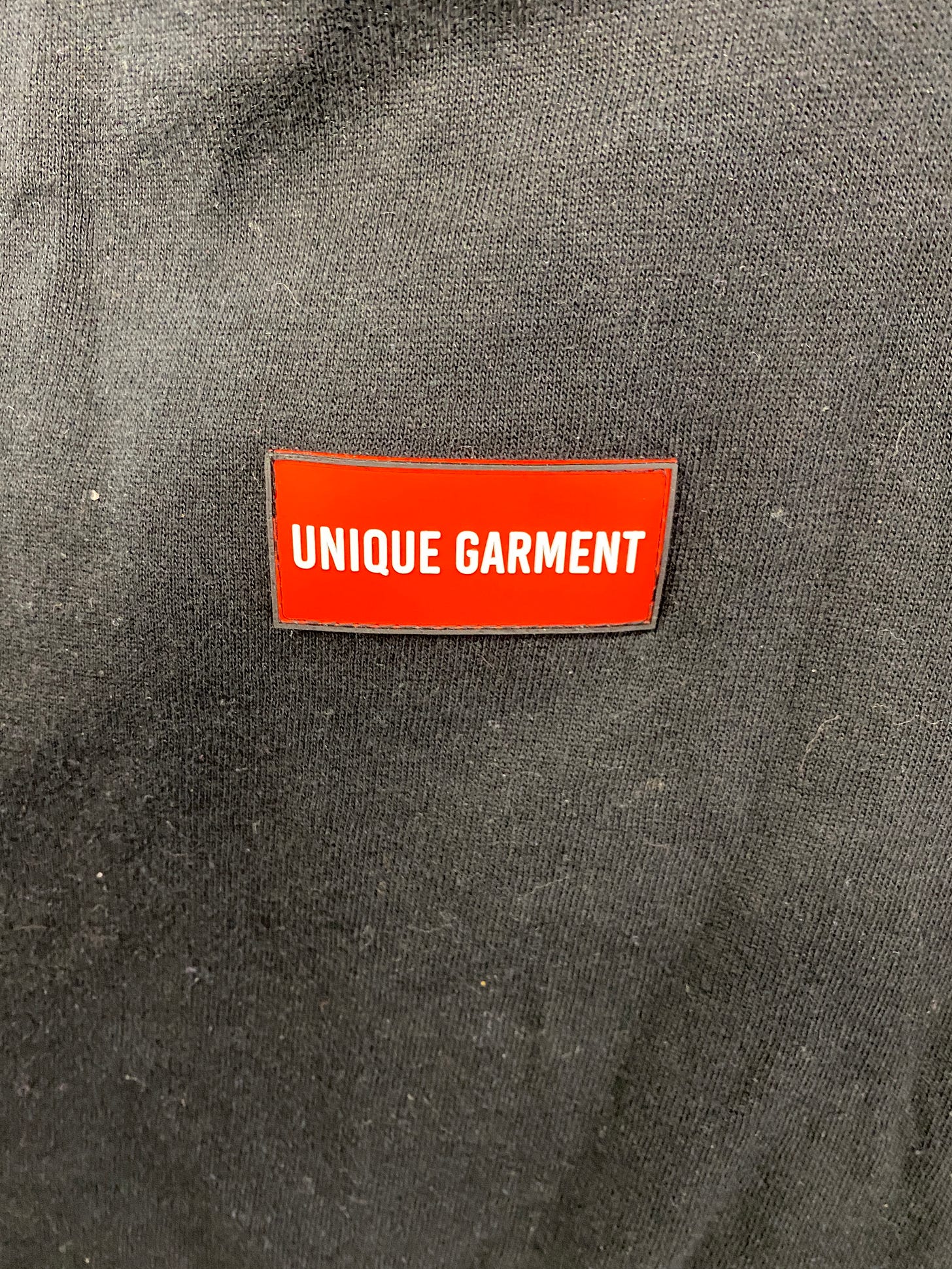Authentically Inauthentic™
What is people's obsession with being "real" online?
I’m allowing myself one cynical article a month, and this is it.
I hate the word “authenticity.” A piece of my soul dies anytime I hear someone online talk about how the formula for social-media success is to “just be authentic.”
What does authentic even mean? Let’s go high-school essay on you guys. According to Merriam-Webster and Cambridge, authentic means:
Not false or imitation: Right off the bat, we’ve run up against a problem. Most of social media is built on imitation. Trending sounds, challenges, duets, #grwm, #ootd. People will even fabricate wild stories to go viral (and it works). Not exactly authentic.
True to one’s own personality, spirit, or character: My mother argued this point—there are people who have a knack for showing up as themselves online. Even so, how much of the self can be reproduced in 3-minute videos? Can we really know someone authentically through our screens? I’d argue no. And honestly, that separation and privacy can be powerful and necessary.
Genuine—being what it claims to be: This feels closest to what people want from their content creators. Someone who walks the walk and talks the talk.
But here’s what I think: if you were actually being authentic, you wouldn’t spend a second thinking about it.
From Showcasing Perfection to Showcasing Realness
The internet has evolved. We have gone from idolizing Jay Alvarrez and Alexis Ren with their perfect bodies in blue-ass water, living seemingly perfect lives, to wanting creators to show us that they’re accessible, relatable, and vulnerable.
Father algorithm now favors the pictures of your dinner after it’s been eaten over the perfectly manicured aerial shot of your croissant and matcha latte.
So, being raw and imperfectly ourselves is now the formula for success.
So much so that corporate America has smelled the money and is now jumping on the authenticity-vulnerability bandwagon. Just picture it: the marketing team of a capitalist enterprise in a boardroom meeting, brainstorming how to seem human to the general public.
Authenticity, in reality, has become content strategy. A verb. Exercise that authenticity like a muscle and you will be thanked for your genuineness. Tell me why you hate yourself and I’ll reward you with my like!
Pressing Play
The definition of play is “to engage in activity for enjoyment and recreation rather than a serious or practical purpose.”
Seems like a fitting word to describe what we do when we record ourselves or when we view another person’s video: we press play.
The moment we press play, we’re no longer in pure reality—we’re now performing or consuming someone else’s performance. There’s a medium, a barrier that’s picking up what you’re laying down. That performance is planned, if not carefully curated: lighting, framing, scripting, editing. So if we pause to strategize on how we can “show up more ourselves” online, we’ve stopped being authentic in that very moment. You’ll be performing a version of yourself, and the audience will reward whatever version of “you” feels most comforting (and consumable) to them. That’s why people go from loving creators one day to hating them another.
Naturally, some people do this better than others. That’s the difference between an Oscar-nominated performance and a daytime-soap opera performance. How well do you know your craft, and how seamless can it come across?
I think the reason not everyone goes viral is because showing up online successfully is harder than people think—just like acting is much harder than people think. And yet, doesn’t everyone think they can become an actor? Just as everyone thinks they can produce quality content.
Performance is baked into the experience of social media. This naturally limits the way we can be authentic, because there is an inherent contradiction when we perform honesty and vulnerability.
Being Deliberate
Full disclosure: I don’t care if the creators I see online are being “real” or “authentic.” I care if they’re entertaining. Their truest selves can stay private, untouched by likes, comments, and reposts.
I don’t believe a person’s authentic self can come across the moment they hit record anyway, and I think that barrier is healthy.
Viewers need to loosen their parasocial expectations of the strangers they view online. There will always be intentionality, acting, planning, and rehearsing. Even the “unfiltered,” “unedited” aesthetics are carefully planned and curated. Embracing the irony that is social media is what makes it funny, entertaining, and fun.
My husband actually hit the nail on the head when he told me: “Authenticity is whatever the algorithm is rewarding today,” which, by definition, could never be authentic.
The Real Real
Next time someone tells you to “be authentic” online, just remember: The algorithm thanks you for your service.
I leave you with some tried-and-true ways to seem authentic:
Film in your car. Something about being mobile—or pretending to be—is highly relatable.
If you’re going to cry on camera, don’t put the countdown timer on. Your audience is no idiot. They know you’ve propped up your phone and are giving them your good crying angle. You gotta make it look like a spontaneous crying session. Look ugly as well.
Ask for help you don’t need. Even if you know exactly what you’re gonna wear, ask your audience. They appreciate that you consider their input.
Spill your guts. Embarrass yourself. People online are nothing if not morbid.
Disclaimers. For what? Doesn’t matter. They love the disclaimers.
Post anything and say: I hope the real ones find this. The real ones will, in fact, find it.
Or…Maybe let’s just skip the whole charade and play. Be deliberate, be creative, intentional. You don’t owe the internet your truest self. Crafting authenticity is done in the real word, not online. So, show up as a character, as a fragment, a mood. It doesn’t mean you’re fake—it actually means you understand the context in which you’re showing up: social media. And social media will never be reality, and it doesn’t have to be. Because in this theater of screens, being “authentically inauthentic” might be the purest act of all.








What if the only authentic thing about social media is its randomness that rewards different things every season?